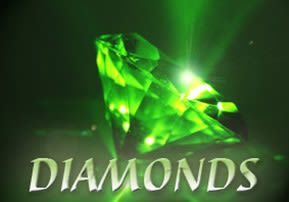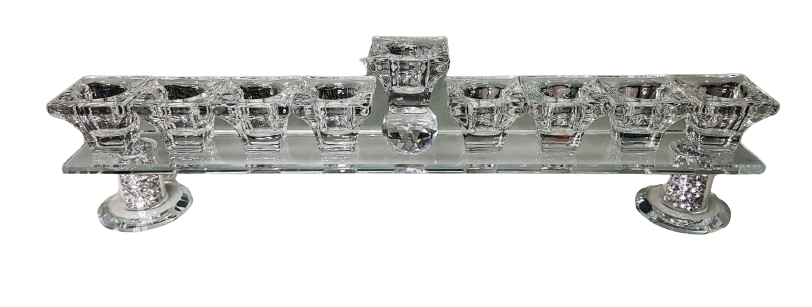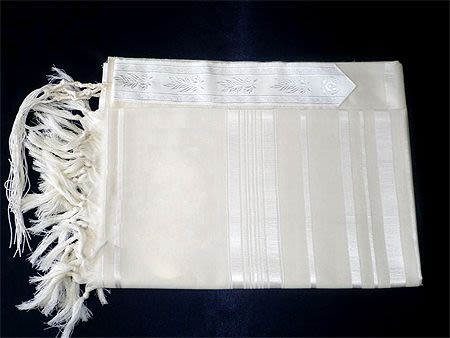
Diamonds
Whenever we repel sadness and strengthen ourselves in joy by looking for our good points, we walk away as the winners… the Hope Diamond is peanuts and...

The Hope Diamond is peanuts and popcorn compared to a ray of happiness that emanates from the human soul. Why? What does happiness mean? Happiness is a statement that we are content with the way Hashem runs the world in general and with our lives in particular. In that respect, happiness is the greatest expression of emuna, the pure, steadfast faith in Hashem, that can be. Emuna is priceless, the most cherished commodity in the universe. As such, a ray of happiness is priceless too, worth much more than a diamond.
Rebbe Nachman of Breslev tells a story about a diamond and happiness that teaches an eye-opening lesson in life. A Jew from a village in Poland had a rare diamond. He showed it to a local gem trader. The gem trader told him here in Poland, people didn’t have the money to pay the true worth of the villager's diamond. If he wanted a really good price, he would have to sail to London. In London folks appreciated a rare gem and had the wherewithal to pay for one.
The villager decided to take the gem trader's advice and sail to London to sell his diamond, but he had barely a copper kopek to his name. He didn't know what to do, so he roamed around the port, looking for a ship that would agree to take him on board, with a promise that he would repay the captain after they arrived in London.
Finally, the villager spied a kind-looking captain standing on the gangplank of his ship. With nothing to lose, the villager approached him and said, "Hello, Captain! I have an exquisite, two-carat flawless diamond that I would like to sell in London. Are you bound for London by any chance?" The captain said, "Yes! As a matter of fact, I'm sailing to London in a few hours. So what's your problem? Come on board!" The villager replied sheepishly, "To be honest, I'm pressed for cash at the moment. But I'll be happy to pay you as soon as we arrive in London when I sell my diamond."
The captain asked to see the diamond. A bit of a gem expert himself, his eyes nearly jumped out of their sockets when he saw the sparkling flawless jewel, a gem fit for a king. In London, the diamond would easily command a hundred times the price it could command in Poland. Not only did the captain agree to take villager on board, he also gave him the ship's best suite and ordered the cooks and waiters to pamper the villager in any way they could.
Everyone on board loved the villager. He was always happy and smiling. He sang and danced all day long. The captain loved to dine with the optimistic villager. He would forget all his troubles whenever they were together. The captain and crew thought that the villager was so happy because of his diamond. After the sale of the diamond, he would be a multi-millionaire.
During meals, the villager would often take the diamond from his pocket, place it on the table, and gaze at it. One morning, during breakfast, the villager was so drowsy from his previous night's singing and dancing that he dozed off at the table. The waiter cleared the table and then shook the tablecloth outside the porthole window. With the breadcrumbs, the diamond was thrown into the sea.
The villager woke up and stared at the empty table. A big lump filled his throat, a burning sensation made his cheeks glow a bright red. The realization of what had happened crashed on his brain like a ton of concrete. A nagging, nasty little voice in his head – the voice of the Yetzer Hara, the Evil Inclination – said, "Hey, Pal, you're finished! You have two choices, depression or suicide! At any rate, as soon as the captain finds out that you lost your diamond, he's going to throw you overboard! The game is over for you!"
The courageous little villager then told himself, "I am not finished! Nobody knows that I lost the diamond!" So instead of falling into despair and depression, he acted even happier, singing and dancing all day long.
One day the Captain offered him a partnership. "I need someone loyal and trustworthy like you. In the hold of this ship, I have a cargo that's worth five hundred times more than your diamond, but I don't want the ship's owners or the authorities to know that it's mine. Let me put the cargo in your name. We'll be partners in the profits." The captain drew up a document that included the villager as the owner of the cargo, and they sealed their deal with a handshake.
When they reached port, the captain suffered a massive heart attack and died. The little Jewish villager from Poland was left with riches that far exceeded the value of his lost diamond.
What's the moral? By maintaining his happiness, the villager emerged the winner! By repelling sadness and depression, even though he had every reason to be sad and depressed, he attained real happiness!
Maybe we have a legitimate reason to be sad. But, whenever we repel sadness and strengthen ourselves in joy by looking for our good points, we walk away as the winners.










Tell us what you think!
Thank you for your comment!
It will be published after approval by the Editor.